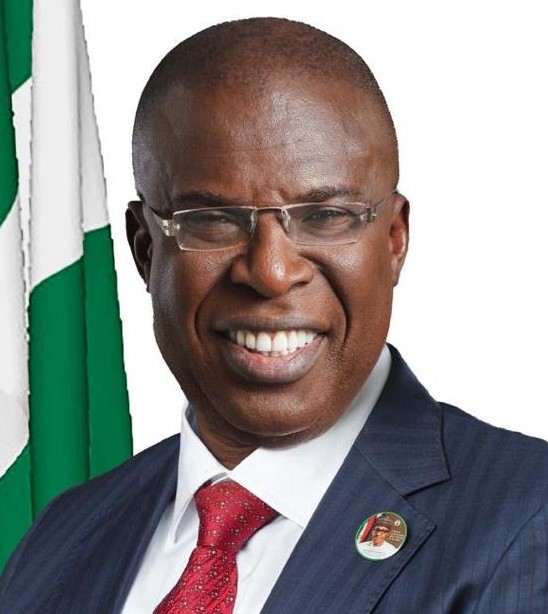The Minister of State for Petroleum Resources, Timipre Sylva has called for synergy among agencies in the country to tackle the increasing smuggling of Premium Motor Spirit (PMS) across the nation’s borders.
The Minister expressed worry about the country’s daily petrol consumption, which stood at 102 million litres per day in the month of May.
He called for synergy between the Nigerian National Petroleum Corporation (NNPC), Petroleum Equalisation Fund (PEF), Petroleum Product Pricing Regulatory Agency (PPPRA), the Economic and Financial Crimes Commission (EFCC) and other security agencies.

Speaking at a stakeholders meeting organised by the Nigeria National Petroleum Corporation (NNPC), in Abuja, on how to stop smuggling in the country, Sylva said the only solution to halting the criminality surrounding the smuggling of PMS is for stakeholders to work together to ensure that the trend is halted.
Sylva said: “I would like to put it on record that whatever we are trying to do in the area of deregulation will not make sense without us exactly knowing the actual consumption of PMS.
“When I first came in as minister, I was informed that the daily consumption in the country was around 60 to 62 million litres a day, which to me sounded a little bit outrageous considering the number of cars we have on the road.
“But somehow, the figures, I understand today, have come down to around 52 million litres. Maybe the number of vehicles has suddenly reduced, but you will agree with me that something is wrong. That is why the tracking of trucks loading products is essential for us to move forward on this issue of subsidy removal,’’ the minister said.
Sylva added that illegal export of products through the borders whether the land or sea must be stopped, adding that Operation White that was commissioned in 2020 had not worked effectively until the EFCC came into the picture.
“I believe that with the EFCC in the picture, I think that the system will work better and know that the Petroleum Equalisation Fund is also working on product tracking arrangements. For me, I am happy to see that the EFCC is working with us and if we can get this right, I think our movement toward deregulation will be better assured,’’ he said.
The Group Managing Director of NNPC, Mele Kyari, who convened the meeting, said the current situation had kept the country in a state of bleeding, as it could not sustain the payment of subsidy that accompanies the volume put at 100 million litres.
According to Kyari, with the high volume of daily consumption, the country cannot sustain subsidy payment adding “as long as we don’t regulate volume until we are able to exit this current level, which I know so much work is going on, then we have to manage the volume that we are exposed to between this price of N162 and N256”.
“The difference comes back to as much as N140 billion to N150 billion cost to the country monthly. As long as the volume goes up, that money continues to increase and we have two sets of stress to face, the stress of supply and stress of foreign exchange for the NNPC. We may not see foreign exchange cheque taking place for importation,’’ he said.
The NNPC boss said that President Muhammadu Buhari had directed that smuggling must stop adding that it was the reason for inviting all stakeholders to chart the way forward. He said that the corporation had incorporated the EFCC, the Department of Security Services (DSS), the Nigeria Customs Services (NCS), the Nigeria Security and Civil Defence Corps (NSCDC), on a platform to achieve this. Commenting on the current PMS and subsidy payment, Kyari explained that with the current exchange rate, the pump price of petrol should be N256 per litre. “If we are to sell at the market today at the current exchange rate, we will be selling the product at about N256 to a litre. What we sell today is N162, so the difference is at a cost to the nation,’’ he said.
Also, the EFCC Chairman, Abdulrasheed Bawa, promised that the commission would assist in checking smuggling by ensuring “that perpetrators are brought to book and justice is met for the benefits of Nigerians.”


